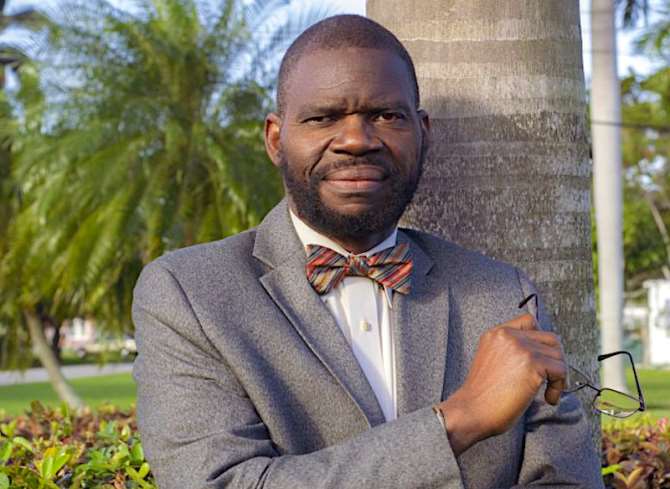Alarming Exploitation in Nigeria's Correctional Facilities: An Odd and Unjust Request for More Court Convictions to Fill Inmates and Boost Farming Activities

In the digital age, news spreads rapidly, and the world is watching. As the astonishing story of Nigeria's prison abuse scandal gains global attention, many readers in developed nations are understandably reacting with disbelief: "No, this can’t be true. This is fake news. It simply didn’t happen."
But, unfortunately, it did happen. The claims made by Officer Ibiang Otu, representing his superiors, expose significant flaws within Nigeria’s justice system. This is a harsh reality that underscores the need for urgent reflection and reform.
The Nigeria Correctional Service (NCoS) in Cross River State has raised serious concerns about the shortage of inmates in its facilities. This shortage has begun to negatively impact essential rehabilitation programs like farming and community service, which are meant to provide inmates with both skills training and rehabilitation.
Even more troubling is the outrageous and deeply unjust request made by Officer Otu, on behalf of his superiors, for more convictions to fill the facilities and support agricultural activities. Their suggestion to increase incarceration for the purpose of providing labor for prison farms is nothing short of exploitation, a complete disregard for human dignity, and a stark shift away from the core principles of rehabilitation. To suggest that people should be incarcerated for the sole purpose of filling labor quotas for prisons is both a moral and institutional failure of the highest order. This shocking proposal shows a disturbing trend where the very idea of rehabilitation is overshadowed by a desire for economic gain. The correctional system’s fundamental mission—to restore offenders and ensure they reintegrate into society—has been abandoned in favor of exploiting those who are already vulnerable.
The Unjust and Alarming Request
The request for more inmates to fuel prison labor programs is a gross violation of justice. It suggests that the incarcerated are seen not as individuals who need rehabilitation, but as mere tools for labor. This is not only unethical but also deeply alarming. The core function of any justice system is to help individuals reintegrate into society, not to use them as a labor force to serve institutional needs.
What’s even more disturbing is that this proposal was made publicly by an officer representing his superiors, signaling that this line of thinking may be part of the institution's systemic approach. The idea of exploiting individuals in prison for forced labor under the guise of rehabilitation, while disregarding their rights and dignity, points to a troubling, systemic failure in how the country approaches justice. This exploitation risks becoming institutionalized unless immediate action is taken to address the root causes of this injustice.
A Deeper Dive into the Psychological Implications
Given the nature of these actions, it’s important to consider the potential psychological factors at play within the system.
Lack of Empathy
At the heart of this issue is a profound lack of empathy for the individuals who would be most affected by such proposals. Empathy, a critical component of effective and ethical governance, seems absent in this situation. The failure to see prisoners as individuals deserving of compassion and rehabilitation contributes to an alarming perspective—one that sees inmates only as a means of production. This lack of empathy can lead to policies that prioritize labor and profit over human dignity, perpetuating the cycle of abuse.
Cognitive Dissonance
This situation also reflects cognitive dissonance within the system. The duty to uphold the law and provide fair treatment to incarcerated individuals clashes with the use of prisoners as cheap labor for agricultural gain. This internal contradiction leads to decisions that not only fail to align with ethical standards but also perpetuate harmful practices. There is a deep conflict between the objectives of justice—rehabilitation, reintegration, and human dignity—and the economic exploitation of prisoners for labor.
Moral Reasoning
The request also raises serious concerns about moral reasoning. The ability to evaluate complex ethical dilemmas and prioritize human rights and dignity is foundational to any justice system. However, this proposal reveals a significant moral gap, as it suggests that the focus has shifted from rehabilitating offenders to exploiting them for economic benefits. Such an approach fails to take into account the ethical principles of fairness, respect, and justice.
A Call to Action
In light of these deeply concerning issues, I strongly advocate for a comprehensive and independent psychological evaluation of Officer Otu and his superiors. Such an evaluation is necessary to ensure that those in charge of managing correctional facilities are fit to uphold the ethical standards and core values of justice, particularly when overseeing vulnerable populations. It is critical that those responsible for the rehabilitation of inmates demonstrate empathy, strong moral reasoning, and emotional intelligence in their decision-making.
Furthermore, the Nigerian government must take immediate and decisive action to address the systemic flaws that have led to this injustice. The focus of any correctional reform must be on human rights, rehabilitation, and dignity. Justice should never be about exploiting the incarcerated for economic gain, but rather about helping them reintegrate into society with the tools they need to lead productive, lawful lives.
The international community must also remain vigilant, ensuring that Nigeria adheres to its human rights obligations and takes meaningful steps toward reform. The importance of reforming Nigeria's justice system to prioritize rehabilitation and reintegration—rather than punitive measures—cannot be overstated.
Together, we can create a world where human rights are respected, and where the rehabilitation of offenders is prioritized over profit. We must confront the challenges within Nigeria’s justice system with urgency, compassion, and a commitment to building a more just, humane, and ethical future for all.
Prof. John Egbeazien Oshodi
Oshodi Open Door, also known as Oshodi Open Door Public Training (OOPDT, pronounced opidt), is a public awareness initiative promoting transparency, accountability, and integrity in Africa through educational articles and resources at [email protected], and offers specialized Timely Response Solutions (TRS) training at minimal or no cost.
John Egbeazien Oshodi is an American psychologist, educator, and author. Born in Uromi, Edo State, Nigeria, he is the son of a 37-year veteran of the Nigeria Police Force. Professor Oshodi is an expert in cross-cultural psychology, forensic/clinical psychology, police and prison science, and social justice.
He has made significant contributions to forensic psychology, introducing it to Nigeria in 2011 through the National Universities Commission (NUC) and Nasarawa State University.

